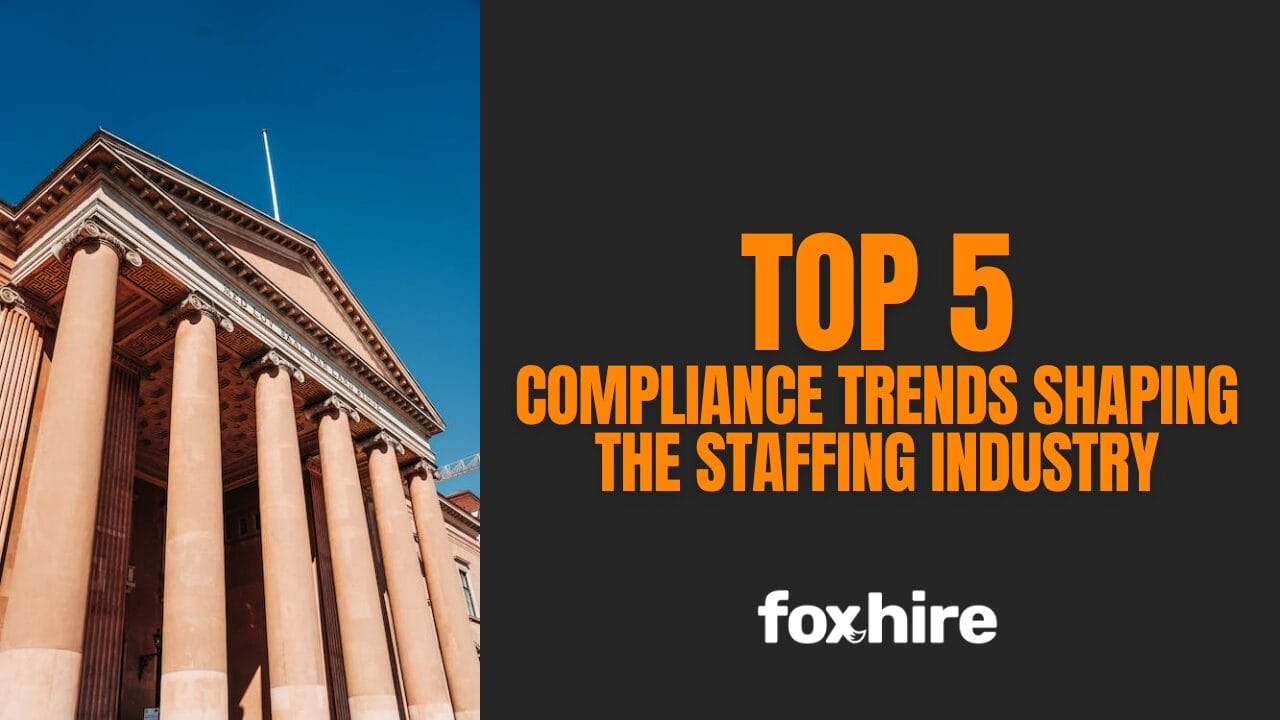In the ever-evolving landscape of the staffing industry, compliance is non-negotiable. From remote work regulations to equal employment opportunity laws, staffing agencies must navigate a complex web of legal requirements to operate ethically and effectively. Let’s delve into the top compliance trends shaping the staffing industry today.
1. Remote Work Compliance
The proliferation of remote work, accelerated by the COVID-19 pandemic, has necessitated a keen focus on remote work compliance. Staffing agencies must ensure adherence to tax obligations, labor laws, data protection regulations, and worker safety standards in the remote work environment. Ensuring your staffing organization or your Employer of Record (EOR) partner is properly set up to do business across all 50 states is key to avoiding disaster.
2. Data Privacy and Security
With data privacy regulations like GDPR and CCPA becoming increasingly stringent, staffing firms must prioritize data privacy and security. Protecting the personal data of candidates, clients, and employees is paramount, requiring robust data protection measures, explicit consent for data processing, and secure storage practices.
3. Worker Classification
Proper classification of workers as employees or independent contractors is a critical compliance concern. Misclassification between independent contractors (1099) or W2 employees can lead to legal liabilities and penalties. As the gig economy expands, staffing firms and gig platforms must stay informed about relevant laws and court rulings governing worker classification to mitigate risks. This is especially true in states that are typically more progressive when it comes to labor laws like California, which has its own classification law called Assembly Bill 5 (AB5).
4. Equal Employment Opportunity (EEO) Compliance
Ensuring equal employment opportunity and preventing discrimination are foundational compliance requirements. Staffing agencies must comply with federal, state, and local EEO laws, implementing non-discriminatory hiring practices and providing reasonable accommodations to candidates and employees.
5. State Healthcare Staffing License Requirements
For healthcare staffing agencies, adherence to state-specific licensing requirements is imperative. These regulations vary by state and may include obtaining licenses, permits, or certifications from state regulatory bodies. Compliance is essential to providing healthcare professionals to clients legally and maintaining patient care standards. 24 states have passed legislation requiring staffing agencies to be licensed in order to offer healthcare staffing services so far. Ensuring your firm, or your EOR partner, is licensed is key to avoiding costly fines, penalties, or even being halted from doing business in those states.
Staying Ahead of Staffing Compliance Requirements
By staying abreast of these compliance trends and proactively addressing them, staffing agencies can mitigate legal risks, foster trust with clients and candidates, and remain competitive in the dynamic staffing industry. Embracing a culture of compliance not only ensures ethical business practices but also sets the stage for sustainable growth and success.
Stay tuned to our blog for more insights on navigating the evolving landscape of the staffing industry and mastering compliance in an ever-changing regulatory environment.





